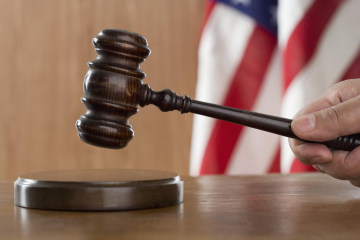
The military tradition of citing a “good soldier” defense—meaning a sergeant could cite his or her fine military record as a defense if charged with sexual assault—is now set to become history. That’s one of the key changes approved by the Senate on Monday, in a wide-ranging bill to combat sexual assault in the ranks. It’s expected to also pass the House.
Sen. Claire McCaskill, (D-Mo.) championed the legislation, and said the “good soldier” defense is “the ridiculous notion that how well one flies a plane should have anything to do with whether they committed a crime” (the defense will still be allowed in cases where the accused’s record is directly relevant to the charges).
The ability to present evidence that the accused is a good soldier has long been a valuable tool for military-defense lawyers at courts-martial and other legal proceedings. The U.S. military justice system, by and large, has gone along. “Military courts are staunch supporters of such evidence as a relevant character trait to nearly every offense under the Uniform Code of Military Justice,” wrote Army Major Rebecca Kliem on the Army’s staff judge advocate school’s blog, where she is an associate professor of criminal law.
“Given this expansiveness, imagination is the only limit of what demonstrates ‘good military character’; any desirable trait in a service member counts,” Army lawyer and Major Franklin Rosenblatt argued in the Army Lawyer journal in 2010. “In application, character witnesses are commonly called to testify about their willingness to deploy with an accused. Other allowable ‘good military character’ testimony includes that an accused is ‘dedicated to being a good drill instructor,’ lawful, easygoing, dependable, and well liked. With so many traits to choose from that are permissible and admissible, nearly anyone can qualify as a ‘good Soldier.'”
Almost 20 years ago, an Army lawyer warned that the good-soldier defense could let the defendant’s attorneys “smother the fact-finder with good soldier evidence regardless of the charges.” And it tended to favor a certain kind of soldier, he noted: “The more senior the accused, the more likely the defense can craft some version of the good soldier defense.”
Four years later, the Army’s top enlisted soldier, Sergeant Major of the Army Gene McKinney, employed the good-soldier defense after he had been charged with sexually harassing women who worked with him. “McKinney’s adroit use of his past service as a ‘good soldier; was widely credited for his acquittal on all charges of sexual misconduct, in spite of damning testimony from six servicewomen about his alleged harassment,” Elizabeth Hillman, now the president of the National Institute of Military Justice, wrote in 1999. “The good soldier defense advances the perception that one of the privileges of high rank and long service is immunity from conviction at court-martial,” said Hillman, now a professor of law and dean at the Hastings College of Law at the University of California.
Sen. Carl Levin (D-Mich.) was an ally of McCaskill’s in pushing for changes in how the military handles sexual assaults. “Military culture has been slow to grasp the painful truth,” the chairman of the armed services committee said, “that even a successful professional can also be a sexual predator.”
More Must-Reads from TIME
- Donald Trump Is TIME's 2024 Person of the Year
- Why We Chose Trump as Person of the Year
- Is Intermittent Fasting Good or Bad for You?
- The 100 Must-Read Books of 2024
- The 20 Best Christmas TV Episodes
- Column: If Optimism Feels Ridiculous Now, Try Hope
- The Future of Climate Action Is Trade Policy
- Merle Bombardieri Is Helping People Make the Baby Decision
Contact us at letters@time.com